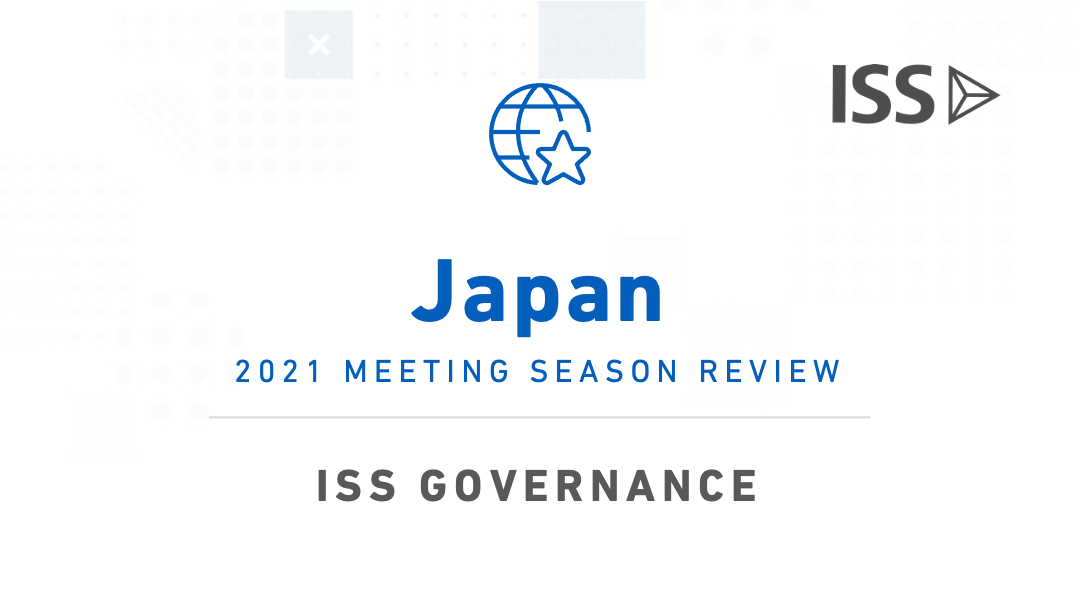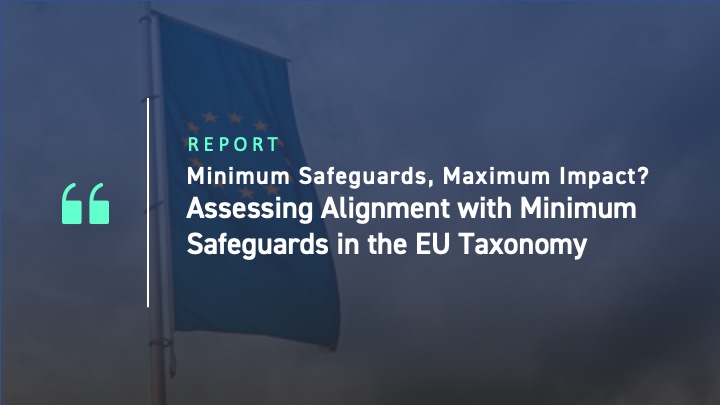Below are key takeaways from ISS’ recently released Japan 2021 Proxy Season Review. The full report is available to institutional subscribers by logging into ProxyExchange then selecting the Governance Exchange and its Report Center tab and to corporate subscribers by logging into Governance Analytics then selecting the Governance Exchange and the Report Center tab.
KEY TAKEWAYS
- Tokyo Stock Exchange Reorganization: The listing rules of the new listing section known as the “Prime Market,” to be launched in April 2022, require the percentage of tradable shares to exceed 35 percent of issued shares. Cross-holding shares will not be considered as tradable shares, so the new rules are expected to prompt companies to reduce the practice of cross-shareholding , which has long been considered as a fundamental corporate governance problem in Japan. In addition, the parent-subsidiary dual listing issue will be revisited.
- Board independence improves: All-insider boards were once the norm in Japan, but as of June 2021 practically all Japanese boards have at least one outside director, 93.2 percent of boards have at least two outsiders, and 73.3 percent of boards have at least one-third of board members as outsiders.
- The number of female board directors is increasing, although from a low base: 53.1 percent of Japanese boards now have at least one female director, as of June 2021, up from 43.8 percent in 2020, and 25.8 percent in 2016.
- Climate change proposals continue to be on ballot: Last year, Mizuho Financial Group received the first climate-related shareholder resolution voted on at a Japanese company. This year, Mitsubishi UFJ Financial Group, Sumitomo Corp., Toyo Seikan Group Holding, and Kansai Electric Power received similar proposals.
- Poison pills intended for specific buyers: In a new development, some companies introduced pills due to a direct takeover threat. Fuji Kosan, Nippo Ltd., and Tokyo Soir Co. each sought shareholder approval to implement a poison pill. Meanwhile, the number of companies with pills which were introduced as precautionary measures when no actual takeover threat was imminent continues to decline.
If you are not a subscriber, please contact sales@issgovernance.com (for institutional investors) or contactus@isscorporatesolutions.com (for corporations) to learn more about accessing bespoke governance research.
By Japan Research Team




